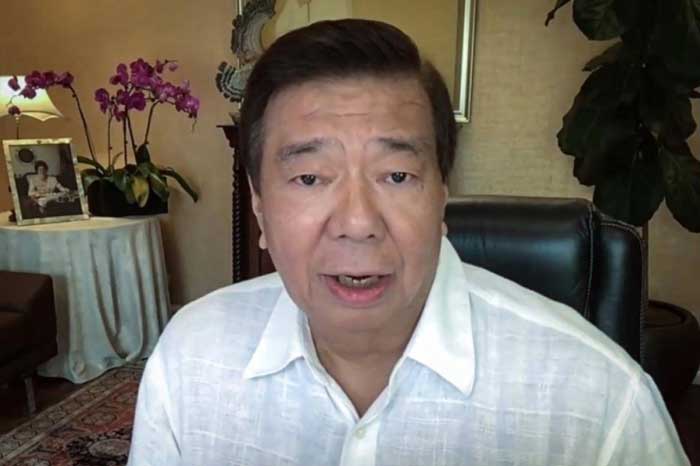
Former Senate President Franklin M. Drilon raised serious concerns over the legality of the decision made by the Office of the President to release P221.424 million in confidential funds to the Office of the Vice President.
Drilon, a former executive and justice secretary, said that the transfer of funds raises constitutional questions and violates the Supreme Court ruling in the case of Araullo v Aquino.
Specifically, Drilon said the transfer violates Article VI, Section 25 (5) of the Constitution, which states that: “No law shall be passed authorizing any transfer of appropriations; however, the President, the President of the Senate, the Speaker of the House of Representatives, the Chief Justice of the Supreme Court, and the heads of Constitutional Commissions may, by law, be authorized to augment any item in the general appropriations law for their respective offices from savings in other items of their respective appropriations.”
“It is clear that the transfer runs counter to the basic principles of budgeting and governance enshrined within Article VI, Section 25 (5) of the Constitution,” Drilon said.
Drilon, who chaired the Senate Committee on Finance from 2010 to 2013, explained that the exception provided for in the above-mentioned section is the process called augmentation.
However, he emphasized that augmentation is permitted only for existing but deficient items of appropriation. Moreover, the process also requires savings, as duly authorized by the President, to be sourced from another agency.
Drilon emphasized there was no CIF allocation in the 2022 budget of the Office of the Vice President (OVP) as the budget was meticulously formulated during the tenure of former Vice President Leni Robredo.
“It is inconceivable that the former Vice President would have advocated for or suggested the inclusion of a CIF. Throughout her incumbency from 2016 until her last day in office in 2022, the notion of a CIF was not deemed necessary, and former Vice President Robredo remained steadfastly opposed to its implementation,” Drilon said.
“In the absence of a CIF in the 2022 budget of the OVP, what item is there to legitimately augment? The decision raises serious concerns regarding the constitutionality of the fund transfer,” Drilon said.
Consistent with the Constitutional ruling, Araullo v Aquino laid down the clear principle that ‘the power to augment cannot be used to fund non-existent provisions in the General Appropriations Act (GAA),’” Drilon said, citing the Supreme Court’s ruling in the Aquino administration’s Disbursement Acceleration Program in 2015.













